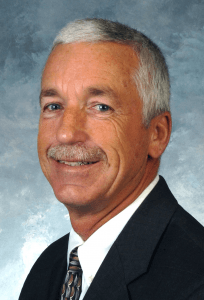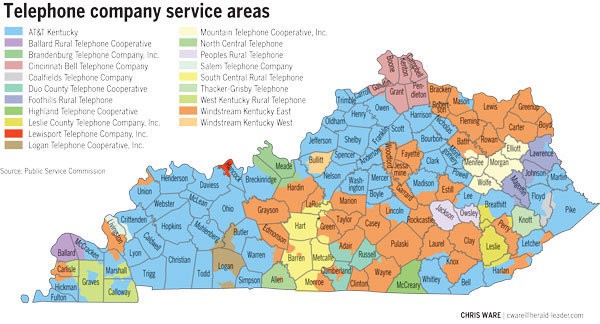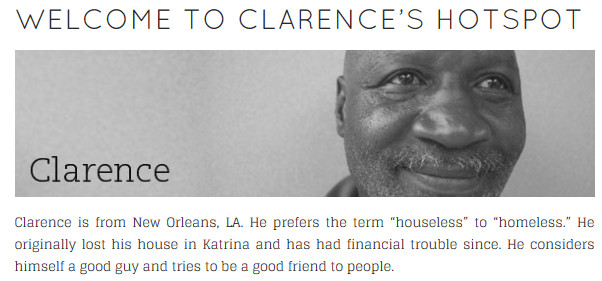
Sen. Paul Hornback (R-AT&T)
A Kentucky state senate panel on Tuesday approved a bill admittedly-authored by AT&T that could allow the company to abandon providing basic telephone service in areas deemed not sufficiently profitable.
Senate Bill 12 is just the latest effort by AT&T to end “Universal Service,” the basic principal that all Americans should have equal access to basic landline telephone service.
The proposed legislation would allow the three largest phone companies in Kentucky — AT&T, Windstream, and Cincinnati Bell to abandon customers who, in one possible scenario, do not agree to a more deluxe feature package that includes long distance calling, wireless service, and/or broadband.
“This bill represents a grave threat to continued, stand-alone, basic telephone service for many Kentuckians who don’t have the luxury of access to Twitter and all the things that we in urban areas tend to take for granted,” Tom FitzGerald, director of the Kentucky Resources Council told the Lexington Herald-Leader.
AT&T says allowing it the right to terminate rural landline service would “spur innovation and create jobs.” It would also strip Kentucky of its power to investigate and force resolutions of consumer complaints.
The optics of the bill’s primary sponsor, Sen. Paul Hornback (R-Shelbyville/AT&T), sitting next to the two AT&T executives who authored the bill as he testified before the Senate Committee on Economic Development, Tourism and Labor was not lost on the bill’s opponents.
“It’s obvious who he is really working for,” said our regular Kentucky reader Paul in Louisville.
Daniel, the Stop the Cap! reader who first shared the story with us, is not happy either.
“This infuriates me,” he writes. “If AT&T gets their way, they will have less reason to invest in areas that are underserved or not served at all, and allow them to further push people to their horrific cell service.”
Daniel barely gets DSL from AT&T — 3Mbps if he’s lucky, and most of his neighbors cannot get any broadband from the company because they don’t officially service the area with broadband. Daniel suspects once AT&T is deregulated further, they will have even fewer reasons to focus on less-populated regions of the state.

Hornback: "Nobody knows better than AT&T what the company needs the legislature to do for it."
“AT&T is my only reliable option – and if I can’t keep their Internet service then I will lose my job,” he says.
In 2006, AT&T helped push through a deregulation measure that stripped the Kentucky Public Service Commission of its ability to oversee prices for telecommunications services in the state. Customers of both AT&T and Cincinnati Bell soon saw price increases after the legislation passed with arguably no improvement in service.
Hornback argues S.12 will help “modernize telecommunications in the state of Kentucky,” without explaining exactly how abandoning customers enhances their level of service.
AT&T says they will not completely exit rural Kentucky if given the power to disconnect its landline network. It can sell rural customers AT&T cell phone service instead. Critics say that comes at a substantially higher price and offers only limited broadband.
Hornback defended that, suggesting the company is wasting money and resources keeping its current antiquated landline facilities when it might be better spending that money on wireless services.
But customers would face charges starting at nearly $40 a month after taxes and fees for a basic AT&T wireless plan with as few as 200 calling minutes a month.
Hornback got around initial opposition to an earlier measure he introduced — SB 135, by reintroducing essentially the same measure inside another unrelated bill. Hornback said that was an effort to give the legislation “a fresh start” in light of heated criticism from consumer groups, the AARP, and even Kentucky businesses.
The committee voted 9-1 for Hornback/AT&T’s measure and sent the bill forward to the Senate floor. The single “no” vote came from Sen. Denise Harper Angel (D-Louisville).

Phone companies in Kentucky
AT&T’s clout in the state capital is unparalleled according to the newspaper:
It employs 31 legislative lobbyists, including a former PSC vice chairwoman and past chairs of the state Democratic and Republican parties, spending about $80,000 last year on legislative lobbying. Its political action committee has given at least $91,000 in state political donations since 2007.
Remarkably, Hornback defended AT&T’s authorship of his bill that would directly benefit the company’s interests.
Nobody knows better than AT&T what the company needs the legislature to do for it, Hornback said.
“You work with the authorities in any industry to figure out what they need to move that industry forward,” Hornback said. “It’s no conflict.”
Senate Bill 12 (As amended)
Amend KRS 278.542 to allow for certain exemptions to the commission’s jurisdiction as provided for in KRS 278.541 to 278.544; amend KRS 278.543 to allow a telephone utility, other than an electing small telephone utility, to establish market-based rates, subject to certain limitations, for basic local exchange service not subject to commission jurisdiction; relieve an electing utility of any provider of last resort obligation notwithstanding any provision of law or administrative regulation; amend KRS 278.54611 to allow the commission to apply standards adopted by the Federal Communications Commission to eligible telecommunications carriers, and the commission may exercise its authority to to ensure that carriers comply with those standards only to the extent permitted by and consistent with federal law; amend KRS 278.5462 to state that the commission shall have jurisdiction to assist in the resolution of consumer service complaints with respect to broadband services.
 A Wall Street analyst says Sprint has a 50/50 chance of being forced into bankruptcy, either pulling through a difficult upgrade to LTE 4G and stabilizing its partnership with Clearwire, or sinking under a load of debt incurred by Apple’s iPhone and network upgrade expenses.
A Wall Street analyst says Sprint has a 50/50 chance of being forced into bankruptcy, either pulling through a difficult upgrade to LTE 4G and stabilizing its partnership with Clearwire, or sinking under a load of debt incurred by Apple’s iPhone and network upgrade expenses. “The problem is 4G. Sprint doesn’t have enough free-and-clear spectrum on which to launch a competitive LTE network, and it doesn’t have the money to clear spectrum that’s already in use,” Moffett said. “We expect Sprint’s competitiveness to begin to backslide when LTE becomes the nation’s de facto standard.”
“The problem is 4G. Sprint doesn’t have enough free-and-clear spectrum on which to launch a competitive LTE network, and it doesn’t have the money to clear spectrum that’s already in use,” Moffett said. “We expect Sprint’s competitiveness to begin to backslide when LTE becomes the nation’s de facto standard.”

 Subscribe
Subscribe






